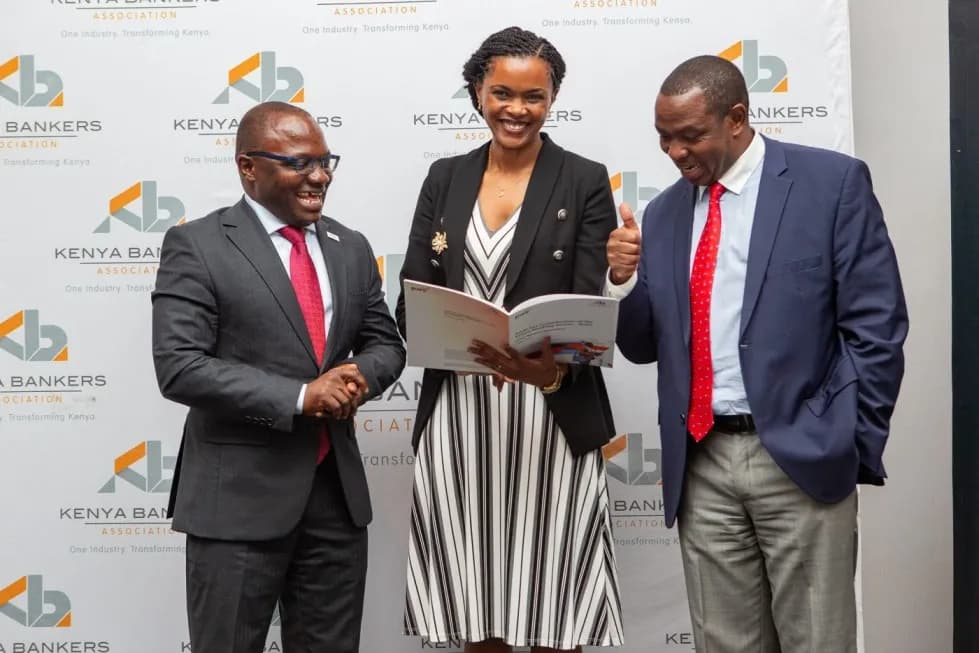We're loading the full news article for you. This includes the article content, images, author information, and related articles.
Kenya's banking sector contributed over 8% of total government tax receipts in 2024, a new report reveals, underscoring the industry's critical role in national revenue generation despite a shifting tax landscape.

Kenya's banking sector paid a total of KSh 194.81 billion in taxes to the National Treasury for the year ended December 31, 2024, according to a joint report by the Kenya Bankers Association (KBA) and PwC Kenya. This contribution, derived from 36 banks and microfinance institutions, accounted for a substantial 8.09% of the government's total tax collections for the period, highlighting the sector's significant impact on the nation's public finances.
The "Total Tax Contribution of the Kenya Banking Sector – 2024 Report," released on Friday, October 24, 2025, provides a detailed analysis of the sector's fiscal role. The total amount is divided into two main categories: taxes borne directly by the institutions and taxes collected on behalf of the government.
The report indicates a notable shift in the tax composition compared to the previous year. While corporate tax remained the dominant contributor, its value saw a 4.98% decline from 2023. This dip was counteracted by a significant increase in 'people-related taxes,' largely driven by the full-year implementation of the Affordable Housing Levy (AHL). Collections for the AHL by the banking sector surged by 113% to reach KSh 3.45 billion.
The substantial tax payments come on the back of a highly profitable year for Kenyan lenders. According to Central Bank of Kenya (CBK) data, commercial banks recorded a record pre-tax profit of KSh 262.3 billion in 2024, a 15.9% increase from the KSh 226.3 billion posted in 2023. This profitability was fueled by high lending rates and income from government securities.
The PwC and KBA report introduced the Total Tax Rate (TTR), a metric that measures the amount of tax paid for every KSh 100 of profit. For 2024, the TTR stood at 38.50%. This means that for every KSh 100 of profit generated, KSh 38.50 was paid to the government in taxes. This represents a decrease from the 46.77% TTR recorded in 2023, a change attributed mainly to the significant increase in overall bank profitability.
The government emerged as the primary beneficiary of the value created by the banking sector in 2024, receiving 54.95% through taxes. Employees received 25.62% in salaries and benefits, while shareholders obtained 19.44% through dividends. This distribution underscores the sector's role not only as a taxpayer but also as a major employer and a vehicle for investment returns.
However, experts have raised concerns about the economy's overreliance on a small number of taxpayers. Alice Muriithi, a Tax and Legal Services Partner at PwC, noted that with just 36 institutions contributing over 8% of total taxes from a pool of over eight million registered taxpayers, the concentration of the tax base is clear. KRA Board Chair Nderitu Muriithi acknowledged this, stating that the authority is looking to broaden the tax base by targeting other sectors, including rental income.
KBA Chief Executive Officer Raimond Molenje emphasized the report's value for policymakers in balancing fiscal sustainability with the resilience of the banking sector. The report also highlighted the administrative load on banks, with each institution dedicating an average of three full-time employees and spending approximately KSh 13.5 million annually on tax compliance. Banks have suggested administrative simplifications, such as reverting to monthly filings for Withholding Tax and improving the automation of KRA's iTax and eTIMS platforms to ease this burden.
Keep the conversation in one place—threads here stay linked to the story and in the forums.
Other hot threads
E-sports and Gaming Community in Kenya
Active 8 months ago
The Role of Technology in Modern Agriculture (AgriTech)
Active 8 months ago
Popular Recreational Activities Across Counties
Active 8 months ago
Investing in Youth Sports Development Programs
Active 8 months ago
Key figures and persons of interest featured in this article